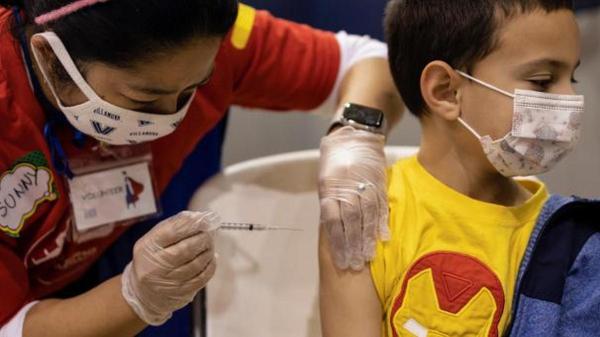Everything you need to know about the vaccine for children aged 5 to 11 years
Last Tuesday, the Public Health Commission approved the extension of vaccination against the coronavirus to children aged 5 to 11 years, at the proposal of the experts of the Vaccines Conference. A decision that coincides with the rise in infections and the threatening presence of the omicron variant, more transmissible than the delta, according to the first studies. But, what are the main questions raised by the pediatric vaccine?
When does the vaccination of children from 5 to 11 years start?
Next Wednesday, December 15.
How many doses will children be given?
Two and separated, one from the other, for eight weeks. Children who have already passed the infection will receive a single puncture between 4 and 8 weeks after the diagnosis of the infection or the onset of symptoms.
In the case of contracting the infection after receiving the first dose, the guideline will be completed with a second puncture when 4 to 8 weeks have elapsed since infection. Finally, whoever turns 12 years old between the first and the second dose will receive the pediatric vaccine in the first puncture and the adult vaccine in the second.
What vaccine will be injected?
Pfizer, the only pediatric immunogen currently authorized by the European Medicines Agency (EMA). This same month the agency plans to rule on Moderna's pediatric vaccine.

Pfizer's childhood vaccine will be dispensed in different vials than those used for the adult population. The children's formula does not require dissolution and the dose (10 micrograms) -identical for both a 5-year-old and an 11-year-old- will be a third of that for adults (30 micrograms).
Can they have adverse effects?
Antoni Soriano, doctor of pediatric infectious pathology at the Vall d'Hebrony hospital, member of the scientific committee of experts that advises the Generalitat, argues that with the planned dose for children, no cases of myocarditis and pericarditis have been detected, although he affirms that surveillance of possible adverse effects. He stresses that the childhood vaccine has been shown to be safe and effective (more than 90%) in children aged 5 to 11 years.
He also recalls that almost 5 million doses of this pediatric immunogen have been administered in the United States and no serious adverse effects have been reported. Yes, local adverse reactions have been described - such as redness and pain in the puncture area - and, only in some cases after receiving the second dose, tiredness or fever or headache that have resolved within a few hours.
For any questions about the process, he recommends contacting health specialists through La Meva Salut or the pediatric nurse.
Will it be done by age groups?
No, at the same time and by appointment. Minors who are part of risk groups will have priority. An appointment will have to be made -they are expected to be available early next week- through the portal www.vacunacovid.catsalut.gencat.cat, in the case of Catalonia.
Will children receive the vaccine at school?
No, the inoculations will take place in vaccination centers, CAP and pediatric hospitals so that the children can be accompanied by their parents, who must present a document that proves the relationship. In the event that the companion is a grandparent or another relative, an authorization must be presented.
Why is it necessary to vaccinate children?
Despite the fact that many experts assure, as a result of the experience accumulated during the pandemic, that the little ones get sick less, the Ministry of Health defends that their vaccination will be carried out to reduce the burden of disease of this group and the transmission in the family environment, in educational centers and in the community. In the decision to vaccinate them, the importance of protecting them against possible conditions in the future and against the persistent covid syndrome has also weighed.
“The time is right,” says Quique Bassat, a pediatrician and epidemiologist at ISGlobal. “In September I would have said that there was no urgency in vaccinating children because the epidemiological situation was tolerable. He would have continued to recommend her, but without urgency. Now the situation is completely different and the group of children under 12 years of age registers the highest incidence, with important outbreaks in schools”, he concludes.

